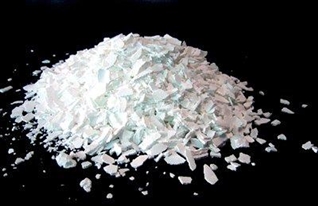 After a unilateral decline lasting more than a year, the potash market price finally started to rebound slightly from last week. The reporter learned from the industry that under the catalysis of winter storage and maintenance and Russia's stoppage of potash fertilizer supply to China's border trade ports from January next year, prices of major potassium chloride ports rose by 30-50 yuan/ton last week.12 The rally on the 10th is still continuing. The industry believes that the price of potash fertilizer has basically bottomed out and will usher in a steady upward trend.
After a unilateral decline lasting more than a year, the potash market price finally started to rebound slightly from last week. The reporter learned from the industry that under the catalysis of winter storage and maintenance and Russia's stoppage of potash fertilizer supply to China's border trade ports from January next year, prices of major potassium chloride ports rose by 30-50 yuan/ton last week.12 The rally on the 10th is still continuing. The industry believes that the price of potash fertilizer has basically bottomed out and will usher in a steady upward trend. On December 10, sales of potassium fertilizer in Shandong and Jiangsu continued to improve. The data shows that the price of red potash in the border trade is around 2550-2600 yuan/ton, the 60% potassium export price in salt lake is 2600-2650 yuan/ton, the normal shipment of Xinjiang Luoka is 51%, and the powder arrival price at 51% is 2950 yuan/ton, 51% The particle arrival price is 3050 yuan/ton. It is said that at present, in the procurement of potassium, compound fertilizer companies are still focusing on Xinjiang potassium, because the content of nutrients is slightly higher and the price is slightly lower than Mannheim.
At the annual meeting of the Potassium Salt (Fertilizer) Industry Branch of the China Inorganic Salt Industry Association held last week, a number of industry insiders have confirmed the trend of the bottom of the potash fertilizer market. Chen Shengnan, deputy general manager of Sinofert Potash Fertilizers Division, said that the demand for potash fertilizer was slowly released in the recent period, and the market purchase enthusiasm was significantly increased. Judging from the company’s recent sales situation, the price of potash fertilizer has bottomed out, and with the start of winter storage in the Northeast and the peak of fertilizer consumption in spring, the trend will steadily increase.
In addition, the executives of SDIC Xinjiang Lop Pot Potash Co., Ltd. and Salt Lake Co., Ltd. (000792) also said at the annual meeting that the current potash fertilizer market has basically bottomed out, with the soft landing of the Chinese economy and the fertilizer demand for the winter and next spring. The rise in potash prices will be a steady increase.
“The current winter light storage is starting, and downstream compound fertilizer companies are actively preparing to stimulate the market demand for potash fertilizer. At the same time, due to the low social inventory in the early period, companies such as Salt Lake have entered the winter shutdown and overhaul, and the remaining stocks are gradually being digested. In addition, foreign Major major suppliers are all limiting production prices, and it is reported that from January 2013, the Russian Ural Potash Company will stop the transfer of potash fertilizer to China's border trade ports; this news further stimulates the price of potash fertilizers to expand,†said Zhao Tingting, an analyst at Business Club. Our reporter, in fact, the recent border trade has not been shipped.
Previously, Baumgartner, chief executive of Ural Potash Corp., made it clear that production of potash will be reduced by 2 million tons from December of this year to March 2013.
"This means that production is reduced by 50%. As the supply of domestically-available potash fertilizers is concentrated in the hands of large companies, the market has experienced a strong pull-up. The downstream factories see that the price of potash has stabilized and procurement has increased. The market activity has increased." Li Yanjun said.
Baumgartner also said recently that it is expected that India will sign a large pot of potassium this month, and the signing of the Chinese potash contract will be postponed until March 2013. BPC stated that the contract price for new contracts in the Indian market is expected to be at CFR$470/ton plus a 180-day letter of credit. The two companies agreed that the current market price of potassium chloride is significantly lower than the soaring food price.
In this regard, Li Yanjun believes that the Russian Ural Potash Company will stop delivering potassium fertilizer to China's border trade ports from January next year in order to cooperate with the contract negotiations. In her view, it is expected that the potash market will continue to be led by the recent upward trend. The future trend is yet to be announced.
Tin Lead Silver Soldering Bar,Silver Soldering Bar,Solder Barrel Fill Silver,Tin Solder Bar Welding Rod
NINGBO XIHAN TIN SOLDER CO.,LTD. , https://www.soldertop.com